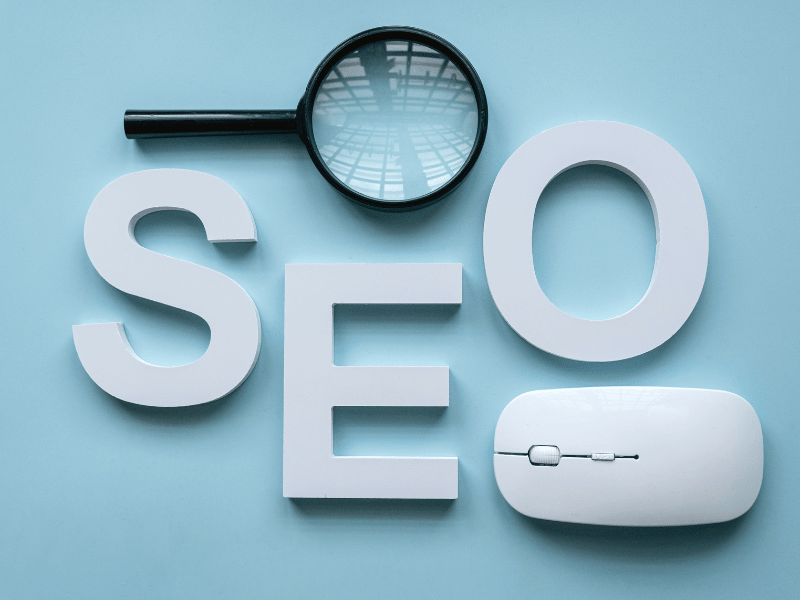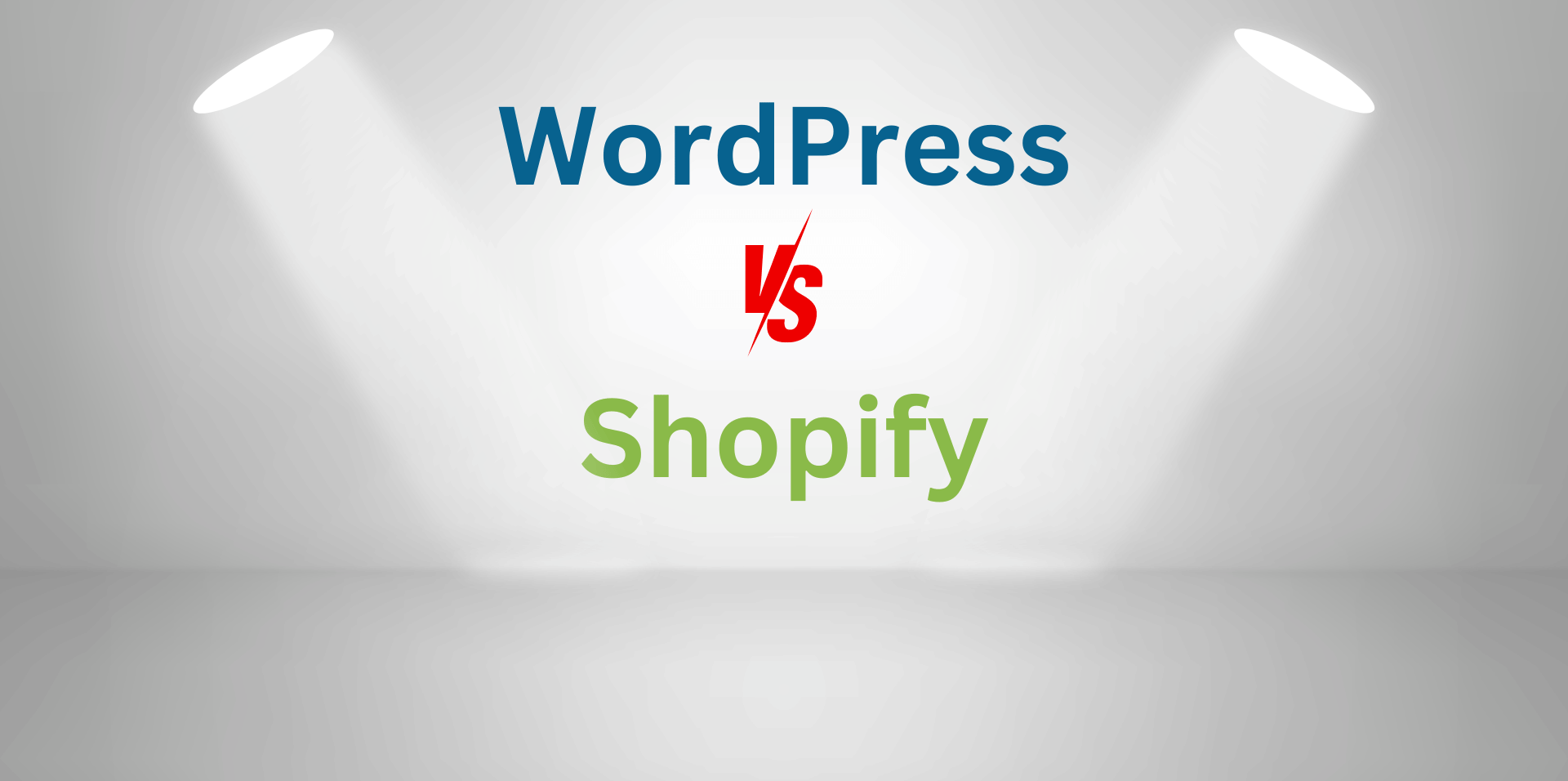Choosing the right platform is crucial when building an online presence, especially for e-commerce. WordPress and Shopify are two of the most popular platforms, each offering unique features and benefits tailored to different business needs.
WordPress is known for its flexibility and customisation options, making it a favourite among businesses that require a highly personalised website. On the other hand, Shopify is designed specifically for e-commerce, offering a user-friendly, all-in-one solution that simplifies setting up and managing an online store.
In this guide, we’ll compare Shopify vs WordPress, exploring their key differences and strengths to help you understand which platform might best fit your business. At britweb we specialise in building custom WordPress websites with excellent user experience and effective SEO.
Get in touch for a free, no-obligation quote.
Overview of WordPress and Shopify
When comparing Shopify vs WordPress, it’s essential to understand each platform, their main selling points, and who they are best suited for.
WordPress
WordPress is an open-source content management system (CMS). Originally designed as a blogging platform, WordPress has evolved into a versatile website builder that can be customised to suit virtually any website, including e-commerce.
The platform is known for its flexibility, offering thousands of WordPress themes and plugins that allow users to create highly personalised websites with virtually unlimited functionality. WordPress’s main selling points include its extensive customisation options, the ability to control your website’s design and functionality fully, and scalability, making it suitable for everything from small blogs to large enterprise websites.
WordPress is ideal for businesses that require a highly tailored website, have specific design needs, or want full control over their site’s backend.
Shopify
Shopify is an e-commerce platform that simplifies the creation and management of an online shop. It differs from WordPress in that it is a fully hosted solution whereby web hosting, security, and ongoing maintenance are all taken care of for you.
Shopify’s main selling points include its ease of use, particularly for those without technical skills, seamless integration with various payment gateways, and robust inventory management tools. It is particularly popular among small and medium-sized businesses that want to set up an online store quickly and efficiently without worrying about website management’s complexities.
The platform is designed specifically for e-commerce, making it an excellent choice for businesses focused on selling products online with minimal hassle.
WordPress vs Shopify comparison
As both platforms cater to different needs, assessing these key points can help you decide based on your specific requirements. Here, we explore these in greater detail.
Ease of use
WordPress
- A steep learning curve requires technical knowledge and requires more hands-on management.
WordPress offers significant flexibility but has a steeper learning curve, especially for those without technical experience. Setting up a WordPress site involves choosing and configuring hosting, installing themes, managing e-commerce plugins, and more. While this allows for extensive customisation, it can be complex and time-consuming, requiring ongoing management for updates, security, and backups.
Shopify
- Easy to use, quick setup, minimal technical skills required.
Shopify is built for ease of use, with a user-friendly interface that requires minimal technical skills. It provides a quick setup with hosting, security, and built-in ecommerce features, making it an ideal choice for beginners or those who want a straightforward solution.
Customisation and flexibility
WordPress
- Highly customisable, ideal for businesses with unique needs and specific branding requirements.
WordPress is known for its extensive customisation options, offering nearly unlimited possibilities through themes, plugins, and custom code. This flexibility allows businesses to create highly tailored WordPress sites with advanced functionality, catering to unique needs and specific branding requirements. Whether you need a simple blog or a complex e-commerce site, WordPress provides the tools to make it happen, though it may require technical expertise.
Shopify
- Limited customisation, suitable for businesses looking for a streamlined, controlled environment.
Shopify offers limited customisation compared to WordPress but still provides design flexibility within its ecosystem. Users can choose from various themes and apps to enhance their store, but customisation is largely confined to what Shopify allows. This makes Shopify suitable for businesses that prefer a more controlled environment and are content with a standardised approach to design and functionality.
E-commerce capabilities
WordPress
- Flexible e-commerce capabilities with WooCommerce, ideal for businesses needing tailored features.
With WordPress, you can transform your site into a full-featured online store using WooCommerce or another e-commerce plugin or plugins. This setup provides flexibility in managing products, payments, and shipping, allowing for a tailored shopping experience. However, achieving advanced ecommerce features may require additional customisation and technical expertise.
Shopify
- Ready-made e-commerce platform with seamless integration, perfect for businesses focused on online sales.
Shopify provides all the essential e-commerce tools for your online business right out of the box. It offers seamless integration of payment gateways, inventory management, and shipping, making it incredibly easy to set up and run an online shop. This makes Shopify best suited for businesses focused exclusively on selling products online and wanting a straightforward, efficient solution.

SEO and marketing
WordPress
- Superior SEO and marketing flexibility, ideal for businesses needing full control over their strategies.
WordPress excels in SEO (search engine optimisation) and marketing due to its strong capabilities and extensive plugin support, like Yoast SEO or RankMath. It provides control over on-page SEO elements (such as page titles and meta descriptions), content structure, and performance optimisation, allowing you to fine-tune your site for search engine visibility. WordPress also offers flexibility in implementing various marketing strategies, including blogs, landing pages, and email marketing campaigns.
Shopify
- Simple yet effective SEO and marketing tools, perfect for straightforward e-commerce marketing efforts.
Shopify offers built-in SEO features and effective marketing tools, though with less control than WordPress. While it handles basic SEO well, users may find fewer options for deep customisation. However, Shopify integrates seamlessly with marketing tools for email campaigns, social media promotions, and discount management.
Cost and pricing
WordPress
- Flexible and potentially cost-effective for complex sites, but requires careful budgeting and ongoing investment.
WordPress pricing can vary widely depending on your specific needs. Expenses typically include hosting, themes, plugins, and potential developer fees for customisation. This flexibility allows businesses to manage their budget according to their requirements, making WordPress often more cost-effective for large, complex sites. However, ongoing investment may be needed for maintenance, updates, and additional features as your site grows.
Shopify
- Predictable and straightforward pricing, ideal for businesses looking for an all-in-one, packaged solution, costs more per-order.
Shopify offers a clear pricing structure with monthly plans covering web hosting, security, basic e-commerce features, and additional costs for premium apps and features. However, the ongoing expense can be greater than WordPress, as Shopify charges a flat fee plus a percentage on each sale. You may also incur additional charges from other payment providers (such as PayPal). These can quickly mount up for those selling high-value products or with a high sales volume and will eat into your profit margins.
Support and community
WordPress
- Extensive community resources, ideal for users comfortable with self-guided support and developer collaboration.
WordPress has a large, active community that offers many resources, including forums, tutorials, and third-party support options. This community-driven support provides various solutions and advice, but finding specific help can sometimes require extensive research, especially for more complex issues. WordPress is ideal for those comfortable seeking solutions independently or working with developers to resolve technical challenges.
Shopify
- Dedicated, 24/7 support with extensive resources.
Shopify offers dedicated customer support with 24/7 availability, providing immediate assistance when needed. In addition to its direct support, Shopify has extensive documentation, a detailed help centre, and active community forums.
Which should you choose for your business?
Both Shopify and WordPress offer advantages when creating websites for e-commerce stores, but your decision will depend on your business’s specific needs, goals, and technical capabilities.
Choose WordPress if:
- You need extensive customisation and control over your website’s design and functionality.
- Your business requires a complex website that integrates multiple features beyond e-commerce, such as blogs, portfolios, or membership sites.
- You have the technical expertise (or access to developers) to manage the setup, maintenance, and customisation of your website.
- You prefer a cost-effective solution that can scale with your business, especially for larger, more complex sites.
Choose Shopify if:
- Your primary focus is on e-commerce, and you want a platform that provides all the essential tools right out of the box.
- You need a user-friendly, all-in-one solution that requires minimal technical skills, allowing you to set up and manage your online store quickly.
- You prefer predictable costs and dedicated support, with everything from hosting to security handled by the platform.
- Your business values a streamlined, straightforward approach to selling products online, with less emphasis on extensive customisation.
To make the best decision, assess your business’s current needs and future goals. Consider your website’s primary purpose, budget, and your technical skill level. If you have the expertise or resources (an outsourced development team) to manage a WordPress website, the customisation it offers can be invaluable. If you prefer a platform that handles the technical aspects for you, Shopify’s ease of use is a major advantage.
When picking an online platform, it is beneficial to contact web agencies and professional developers to discuss your options and gain insight tailored to your business.
Choose britweb to build your website
Exploring Shopify vs WordPress highlights the importance of choosing the best platform for your business. To ensure your website is built with expertise and tailored to your specific requirements, choose britweb. We’re an experienced and trusted web agency known for creating custom and visually appealing websites on the WordPress platform, including online stores of all sizes.
Contact our team to learn more about our services for designing, building, hosting, and supporting business websites.
FAQ
Should I move from WordPress to Shopify?
Whether you should move from a WordPress site to a Shopify site depends on your specific business needs and goals, and both WordPress and Shopify will have their advantages.
If your primary focus is ecommerce and you’re looking for a platform that offers ease of use, built-in features for online selling, and hassle-free management, Shopify might be a better fit. Shopify handles all the technical aspects, such as hosting, security, and updates, allowing you to focus on running your business rather than managing a website.
However, if your website includes more than just an online store – such as a blog, extensive custom content, or other complex features – or if you require significant customisation and control over your site’s design and functionality, sticking with WordPress might be the better option.
Is WordPress good for an ecommerce website?
Yes, WordPress is good for an ecommerce website, especially when paired with the WooCommerce plugin. WordPress offers extensive customisation options, flexibility, and the ability to create a highly tailored online store. It’s ideal for businesses that need control over their website’s design and functionality and want to integrate ecommerce with other content, such as blogs or portfolios.
Can you switch from Shopify to WordPress?
Yes, you can switch from Shopify to WordPress. The process involves exporting your product, customer, and order data from Shopify and importing it into WordPress using the WooCommerce plugin or other migration tools.
You’ll also need to set up a new website design, configure plugins, and possibly recreate some functionality that was built into Shopify. While the switch requires technical effort and planning, it allows for greater customisation and control over your ecommerce store in the long term.
